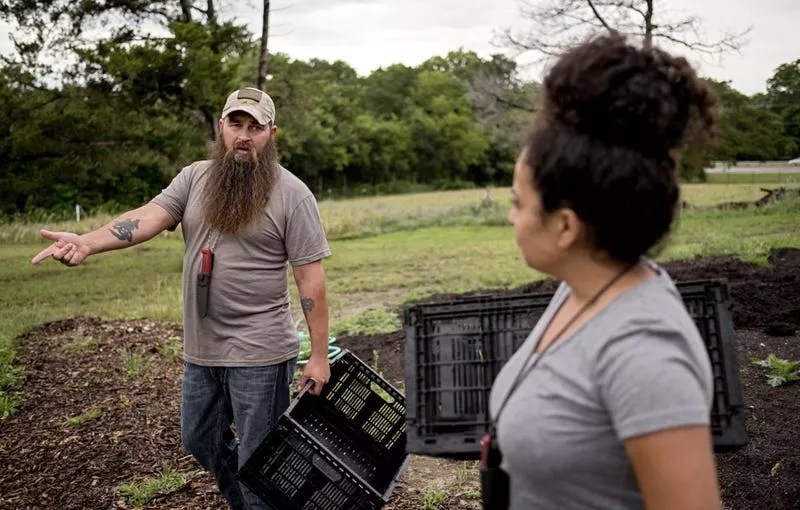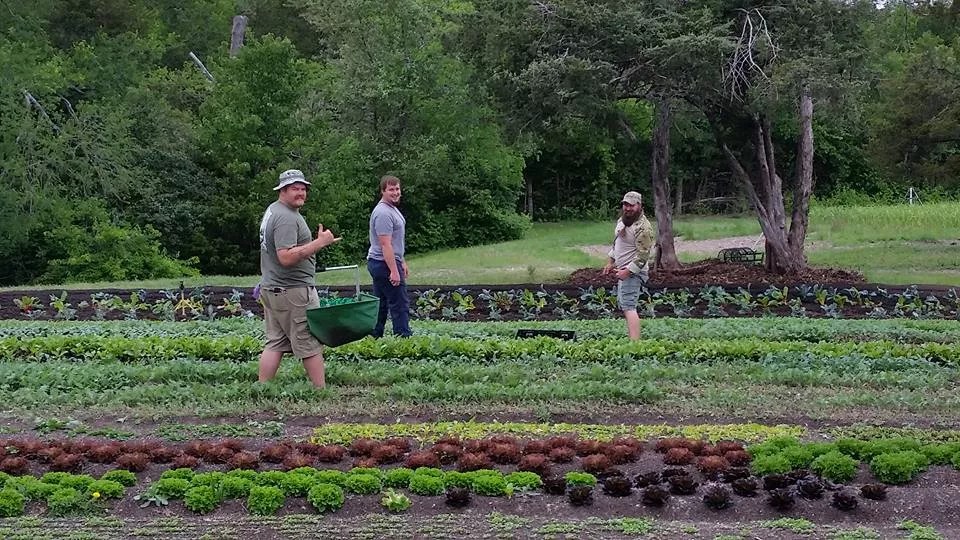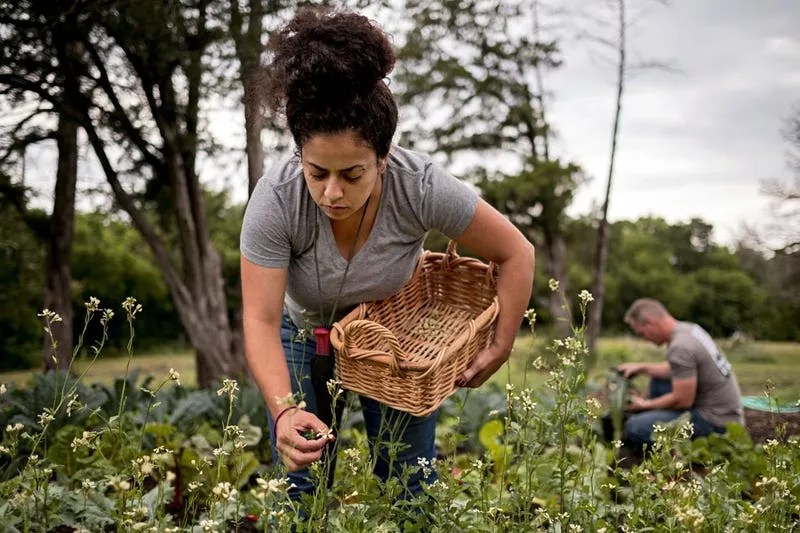
courtesy FARM

Audio By Carbonatix
Stephen Smith and James Jeffers served the United States through two tours in the Middle East. Today, they’re serving in a different way – and you can tell what they do just by looking at the name of the nonprofit they formed to help other veterans.
The two founded Farmers Assisting Returning Military, conveniently called FARM, after they saw the benefits of farming for themselves.
“To date, we have lost 13 men from our unit after they left service to suicide … we didn’t want to stand there and say, ‘Why isn’t anyone doing something about this?’ And we chose to do something about it ourselves.” -Stephen Smith
“They tore up dirt to grow their own organic food, clear up their stomachs after being deployed, and they found it therapeutic,” says Hyiat El-Jundi, FARM’s assistant director of development and programming.
Smith had good reasons for turning to farming, he says.
“My personal interest in agriculture was sparked by some health issues [and] the birth of my first child,” Smith says.
He looked at the chemicals, additives, preservatives and “straight-up dangerous things allowed in our foods.”
He could no longer accept the poor nutrient content of the foods grown; the sick, antibiotic-filled animals slaughtered; and the dependence on commercial herbicides, pesticides and fertilizers, he says.
So Smith and Jeffers started a farm that could feed more than a family on a good plot of land they were renting in DeSoto. This also proved to be an opportunity to expand the farming experience to veterans, providing space where they could grow food.

FARM has moved from a farm in DeSoto to a plot of land adjacent to Dallas Farmers Market.
courtesy FARM
Working outside with the earth and producing something fruitful provided an opportunity for community bonding, El-Jundi says.
“I see how it helped me as a civilian,” she says. “I can only imagine what it can do for a veteran who experienced combat.”
El-Jundi, whose previous experience is in the restaurant industry, is the only civilian (and woman) on the team – something that’s been a positive adjustment.
“I always felt this disconnect with the civilian world. When [FARM] took me under their wing, I finally had the community,” she says.
Today, the organization isn’t working on a large farm in DeSoto. Instead, it’s moved to a 2-acre location adjacent to the Dallas Farmers Market, which it’s calling FARM Urban Park.
The goal is to foster a sense of purpose in the lives of veterans by leveraging their leadership and team-building skills to make a difference in their communities.
While offering a green space for visitors, the farming activities will provide education about sustainable food systems and be a conduit for veterans transitioning into civilian life.

El-Jundi harvests produce at FARM.
courtesy FARM
About once a month, El-Jundi hosts daylong classes on topics such as composting, chickens and gardening-themed event marketing.
The team is hoping that by the fall, the farm will attract veterans who can come grow food as they wish. A recent break-in during which some equipment was stolen has forced the organization to adjust that timeline.
“They cut the fence, broke into the shed,” El-Jundi says. “Luckily the tractor wasn’t taken. And we’ve gotten a lot of support. The community has really helped us.”
While they could’ve easily gotten a plot of land and operated as a for-profit enterprise, they went the nonprofit route not just to help veterans with farming, but to help them find peace.
“To date, we have lost 13 men from our unit after they left service to suicide,” Smith says. “We so many times look for someone or something to blame for these tragedies, but instead we didn’t want to stand there and say, ‘Why isn’t anyone doing something about this?’ And we chose to do something about it ourselves.”
Having veterans in the urban farming operation made it easy to conceptualize, he says, and going nonprofit allowed them to seek donations.
“I felt a calling to do something meaningful for my family, my community and my country. Over the last 10 years, I have met hundreds of vets who feel the same way and are doing the same thing,” Smith says. “My peers that have taken up the challenge of leading the next generation of farmers will ultimately change this country for the better by leading policy changes, feeding their communities clean food and flipping the bird to misguided politicians, corporations and anyone else in the way.”
To donate to FARM or support the Urban Park with a brick paver, visit farmvet.org.